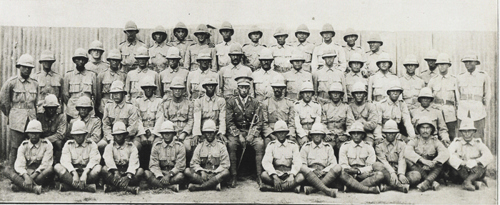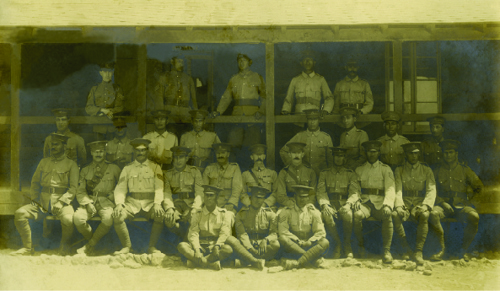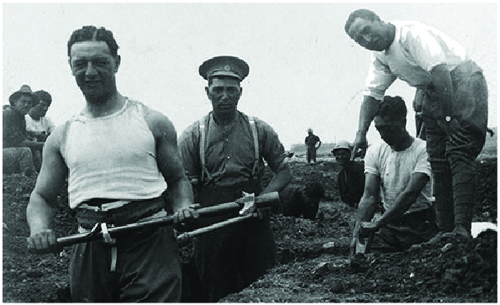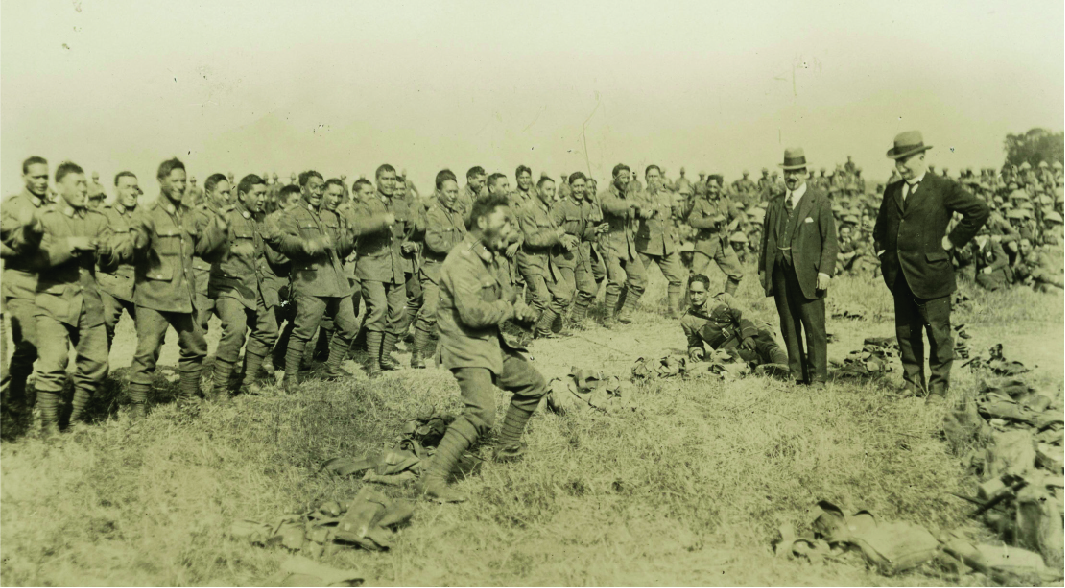He Kupu Whakataki
Tā Tipene O’Regan
The Ngāi Tahu involvement in the First World War military service on behalf of the British Empire poses as many problems and questions as it does for other Iwi Māori. Similar questions can be asked, of course, about the millions of other colonised indigenous peoples conscripted by Britain, France and America, into what was essentially ‘a White Man’s war’. The conflict was instigated and waged in another hemisphere over issues utterly remote from the realities of life in Te Waipounamu or, indeed, in New Zealand. Admittedly, the war had effects on the national export trade and, consequently, on wider economic welfare. That economy, though, was one from which Māori had been largely excluded by the colonial experience and the settler ethos. While the Māori response to the New Zealand engagement in the war effort was mixed and varying in intensity, it still provides us with a significant challenge to explain any participation – let alone enthusiasm – for the enterprise.
![]()

Canterbury Māori Contingent. Soldiers include; William Johnson (3rd row from front, standing), Chris Cooke (7th from right - same row) and Captain John Tikao (centre).
Courtesy of Tahu Potiki.
Māori resistance to military service from the Waikato, Tūhoe and Taranaki was, perhaps, easier to understand. The long burning resentment from the New Zealand Wars, from Rangiaowhia and Ōrākau, from Waitara, Parihaka and Maungapōhatu, together with a multitude of other battlefields, offered many North Island Māori good reason for not wanting to raise a hand in defence of their oppressors. Indeed, the deliberately fraudulent dispossession of Ngāi Tahu and their consequent inter-generational impoverishment might have been expected to have generated a similar spirit of resentment and hostility to the call for ‘the defence of the Empire!’.
He rau tītapu, he rau mahara, he rau aroha e...
E kapakapa ana te manawa
Me te hokinga mahara ki a rātou
ngā toa o te pakanga tuatahi
Ngā toa Ngāi Tahu, moe mai rā e...i!
However, countering what seems a not unreasonable sense of resistance and resentment, there were a number of factors which led to Māori acceptance and a willingness to volunteer – especially for the Māori Pioneer Contingent. For many, at least at the outset of hostilities, there was the simple prospect of adventure, travel and escape from penury. Then there was the ordinary community response to the patriotic trumpets in the media and from political platforms leading both Māori and Pākehā to believe that they were defending their ‘hearth and home’.

On 16 September 1914, the Government announced the formation of a ‘Māori Contingent’ of 200 men for service with the New Zealand Expeditionary Force. This was later expanded to 500 at the suggestion of the British War Office. The first Māori Contingent left Wellington on 14 February 1915 which included Ngāi Tahu soldier John Charles Tamanuiarangi Tikao (see his service listing on page 158). This photograph shows the sergeants of the Māori Contingent in Ghajn Tuffieha, Malta, just weeks before leaving for Gallipoli. Courtesy of Archives New Zealand. Reference: WA 97/3 Box 2/15
.
It is patently clear, though, from, the research represented in this volume that Ngāi Tahu as a people contributed significantly to New Zealand’s participation in the First World War.

Te Rangihiroa (Peter Buck) (centre, with hat), Captain Roger Dansey (in front), Captain Hiroti and Lieutenant (John Charles Tamanuiarangi) Tikao (both on right), digging a trench in Malta in 1915. Photographer unidentified. Courtesy of Alexander Turnbull Library.
Even more significant, perhaps, was the urging of the leading Māori political leaders of the day such as Carroll, Ngata, Buck and Pōmare, that Māori should enlist in order to secure the standing of Māori citizenship in New Zealand society. The MP for Northern Māori, Te Rangihiroa (Peter Buck) went so far as to enlist himself and was later decorated on Gallipoli. Their rallying call, though, “Let your blood be the price of our people’s citizenship”, tells us much about the political and social realities of the time. While their high hopes for equality of citizenship were later to be largely dashed on the post-war rocks of racism and discrimination, Māori, and Ngāi Tahu in particular, largely signed up with enthusiasm both for the New Zealand Expeditionary Force and for what was to become known as the Māori Contingent. Indeed, Ngāi Tahu are said to have had the highest enlistment rate of all Iwi as well as the highest casualty rate. It is difficult, however, to verify the statistic because of the very high proportion of Māori enlistment in the general forces as distinct from the Māori Contingent and the later New Zealand Māori (Pioneer) Battalion. It is patently clear, though, from the research represented in this volume that Ngāi Tahu as a people contributed significantly to New Zealand’s participation in the First World War. Many of our whānau suffered the heart-wrenching loss of their young men and had the hopes and dreams of a generation crushed and torn from them.
The noted New Zealand historian, the late Sir Keith Sinclair, coined the expression that “New Zealand exports dead meat in Peacetime and live meat in War!”. We should not forget our own part, as Ngāi Tahu, in the national proclivity for dying in distant conflicts reflecting other people’s politics and remember our part in that awful spasm of suffering that is being commemorated this year. At the same time as Ngāi Tahu was carrying forward the inter-generational struggle of the Ngāi Tahu Claims, Te Kerēme, our tīpuna were also contributing to the collective struggle of the formative nationhood of our country.
We should, then, not allow ourselves to be too pre-occupied with the betrayal of hope in the discrimination of the post-war period and the national disregard for that contribution. We should, rather, look with pride at the fact that in the midst of inherited and continuing injustice, Ngāi Tahu and other Māori took time out to defend their oppressors in what was seen as the national interest – a nation in which the Treaty promise of citizenship was yet to be honoured.

Above: Members of the New Zealand Māori (Pioneer) Battalion performing a haka for Prime Minister William Massey and Deputy Prime Minister Sir Joseph Ward at Bois-de Warnimont, France. Photograph taken 30 June 1918. Courtesy of Archives New Zealand Reference: IA76/13 H680.
We should, rather, look with pride at the fact that in the midst of inherited and continuing injustice, Ngāi Tahu and other Māori took time out to defend their oppressors in what was seen as the national interest – a nation in which the Treaty promise of citizenship was yet to be honoured.
The names of Ngāi Tahu soldiers are recorded on Rolls of Honour on our marae throughout Te Waipounamu as well as on public memorials in towns and cities over much of the country. There are specific Ngāi Tahu memorials at Arowhenua and on the Rāpaki Jetty which was opened for use in 1916 as a memorial to those who died at Gallipoli. This publication, He Rau Mahara, was conceived as a further memorial prepared by Whakapapa Ngāi Tahu which brings together the names of those Ngāi Tahu soldiers who served in World War One. It represents some three years of research into those who died for our country in the expectation of equal citizenship. It is our challenge to ensure that that dream is not allowed to die and that cause is brought to eventual fruition.
Aoraki Matatū!